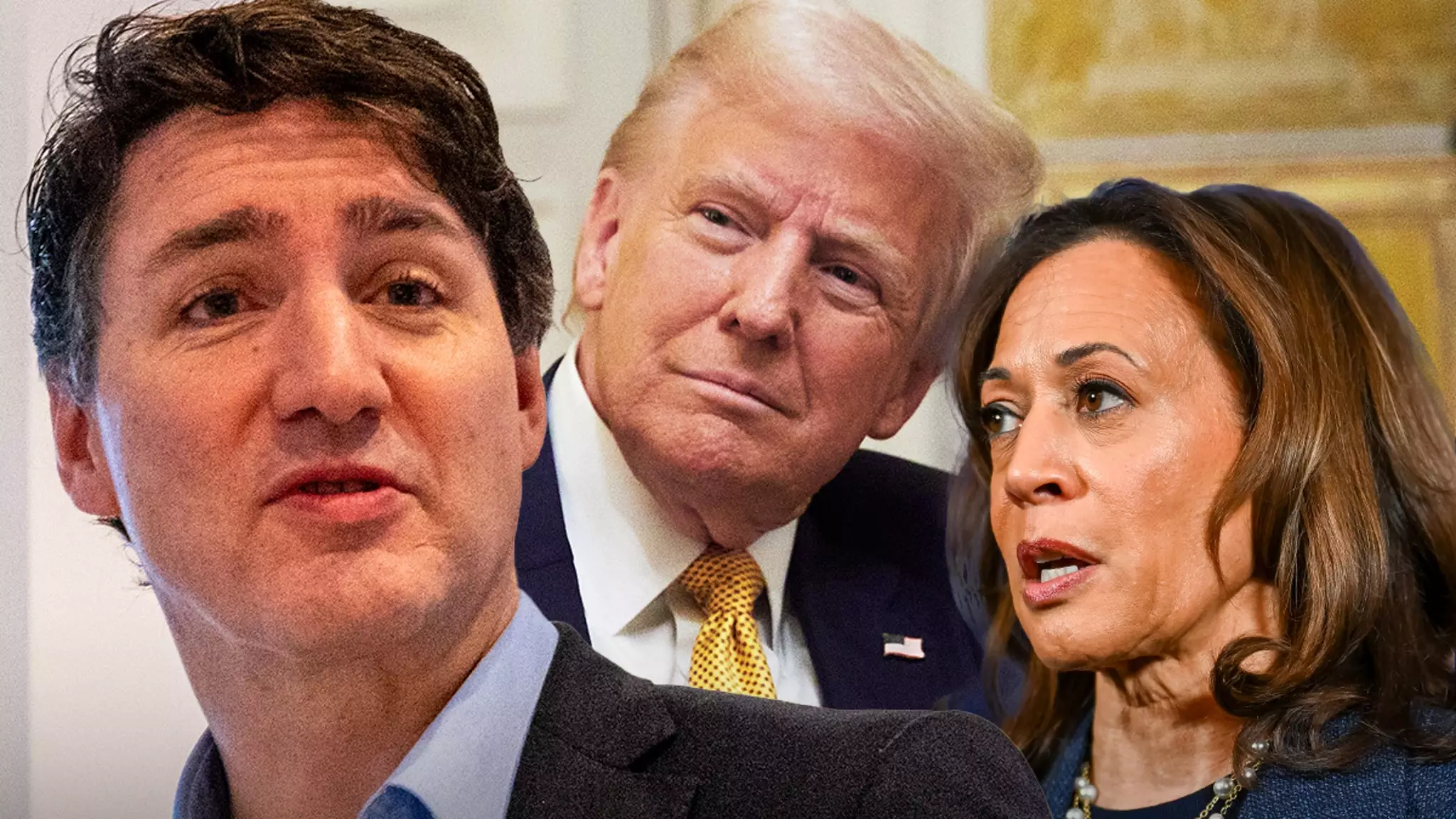In a recent speech at an event hosted by the Equal Voice Foundation, Canadian Prime Minister Justin Trudeau expressed his views on the state of women’s rights in the United States, specifically in light of Donald Trump’s presidency. Trudeau, known for his self-proclaimed feminist ideals, took the opportunity to contrast the current U.S. administration with the potential that a female leader like Kamala Harris could have brought to the table regarding women’s rights. This comment, while rooted in a broader political critique, raises important questions about the effectiveness of gender representation in governance and the implications of male-led politics on feminism.
Trudeau’s assertion that Harris would have driven greater progress for women than Trump suggests a belief in the inherent value of female leadership. He articulated that the recent election of Trump was a setback for women, indicating that the trajectory toward gender equality was disrupted by the election of a male candidate over a female one. This narrative, however, is complex; while having female leaders can amplify women’s issues, it doesn’t guarantee progress. The reality is that political agendas are not strictly dictated by gender, and evidence exists that some policies advocated by male leaders can benefit women. Thus, while it is important to champion female representation, equating it with progress oversimplifies the multifaceted nature of political leadership.
Despite Trudeau’s rhetoric, reactions to his statements from women in the U.S. reveal a spectrum of opinions. A significant percentage of women reportedly supported Trump during the last election, a statistic that Trudeau seemingly overlooked. This divergence highlights the complexities of gender and political affiliation, suggesting that being a woman does not automatically align one with feminist ideals. As such, Trudeau’s comments might resonate with a segment of the population but risk alienating those who feel differently. In making sweeping generalizations, Trudeau not only simplifies the issue but also may come off as patronizing, assuming he knows what is best for women across the border.
Furthermore, Trudeau’s statements come against a backdrop of a strained relationship with Trump, characterized by past tensions over personal attacks and conflicting visions for North America. While Trudeau’s critique appears to be a principled stance on women’s rights, it is also laden with diplomatic tension. Given that both leaders must work together, Trudeau’s approach could either invite further discord or serve as a catalyst for necessary dialogue on women’s issues. A more constructive pathway forward would involve collaborative efforts aimed at gender equality that include voices from across the political spectrum.
Ultimately, Trudeau’s remarks serve as a reminder that feminism and women’s rights cannot merely be championed through narratives that pit one leader against another. True progress requires a nuanced and inclusive approach that recognizes the diverse challenges women face across different contexts. Political leaders, regardless of gender, must prioritize policies that empower women through economic, social, and political avenues rather than engage in combative rhetoric. As the conversation around feminism evolves, the focus should be on actions and results, rather than the genders of those at the helm.

